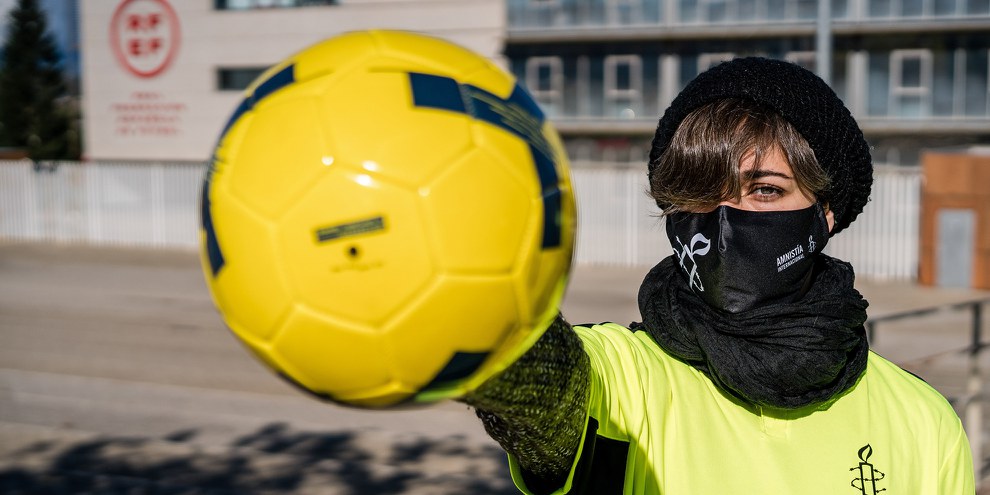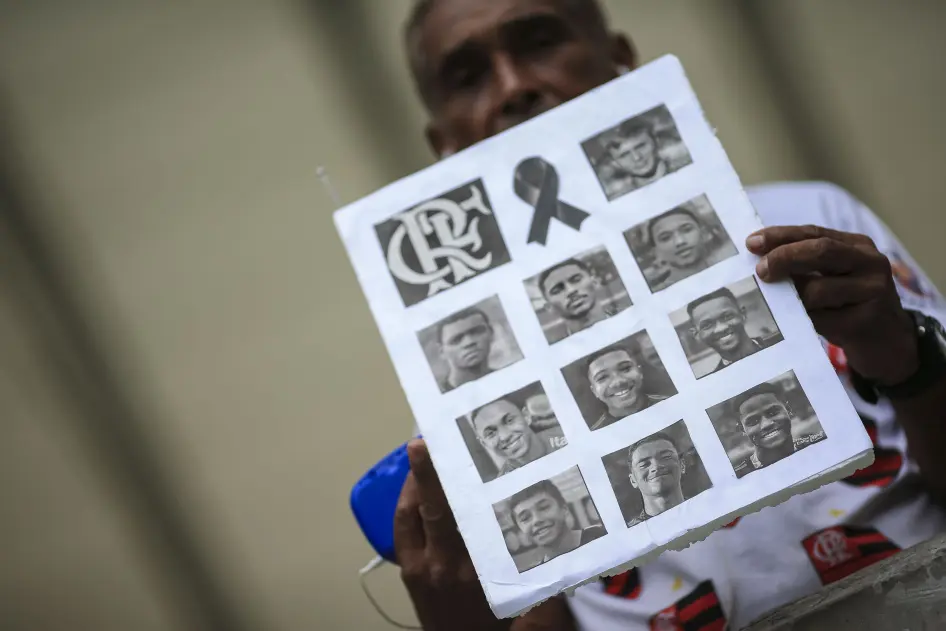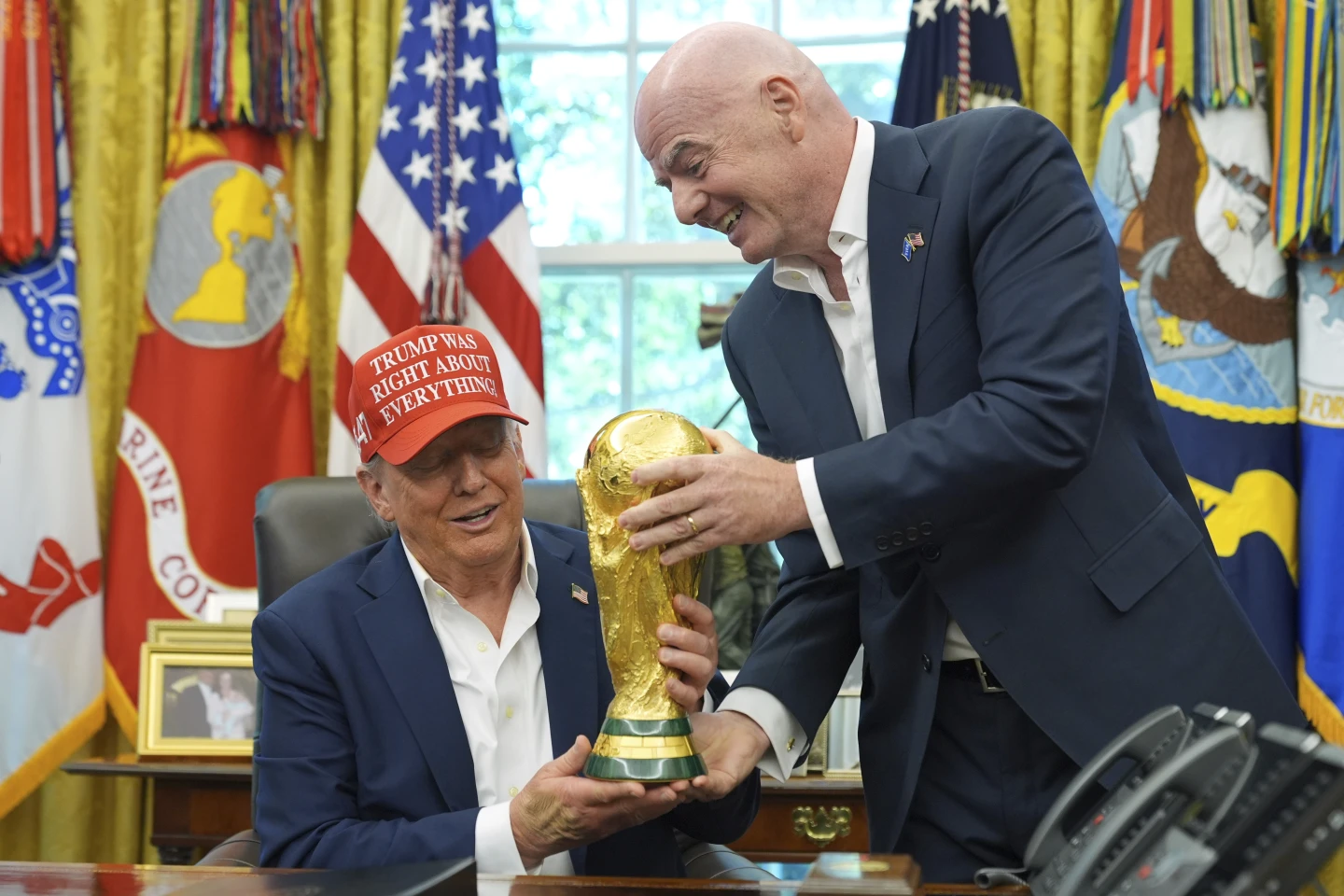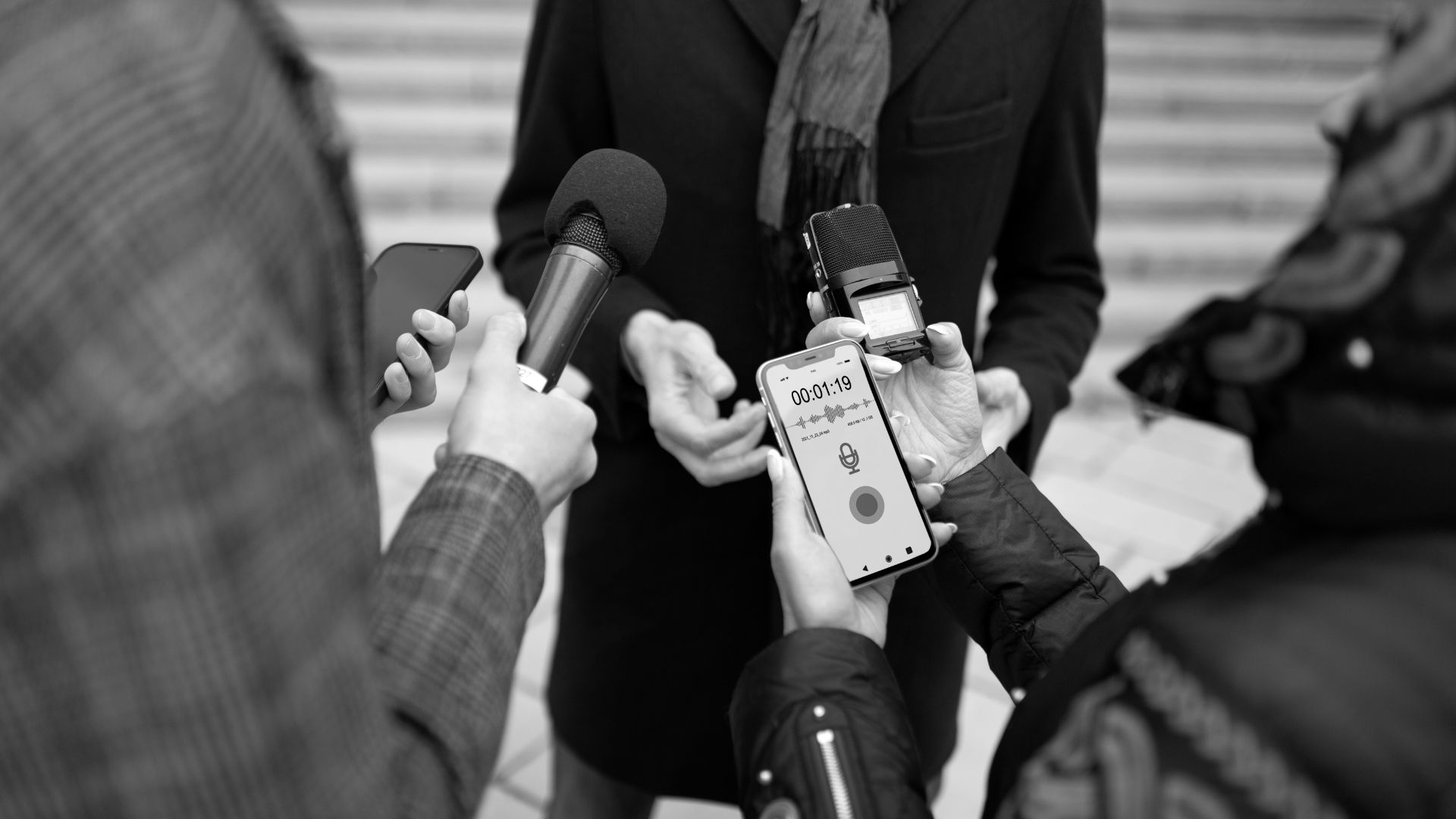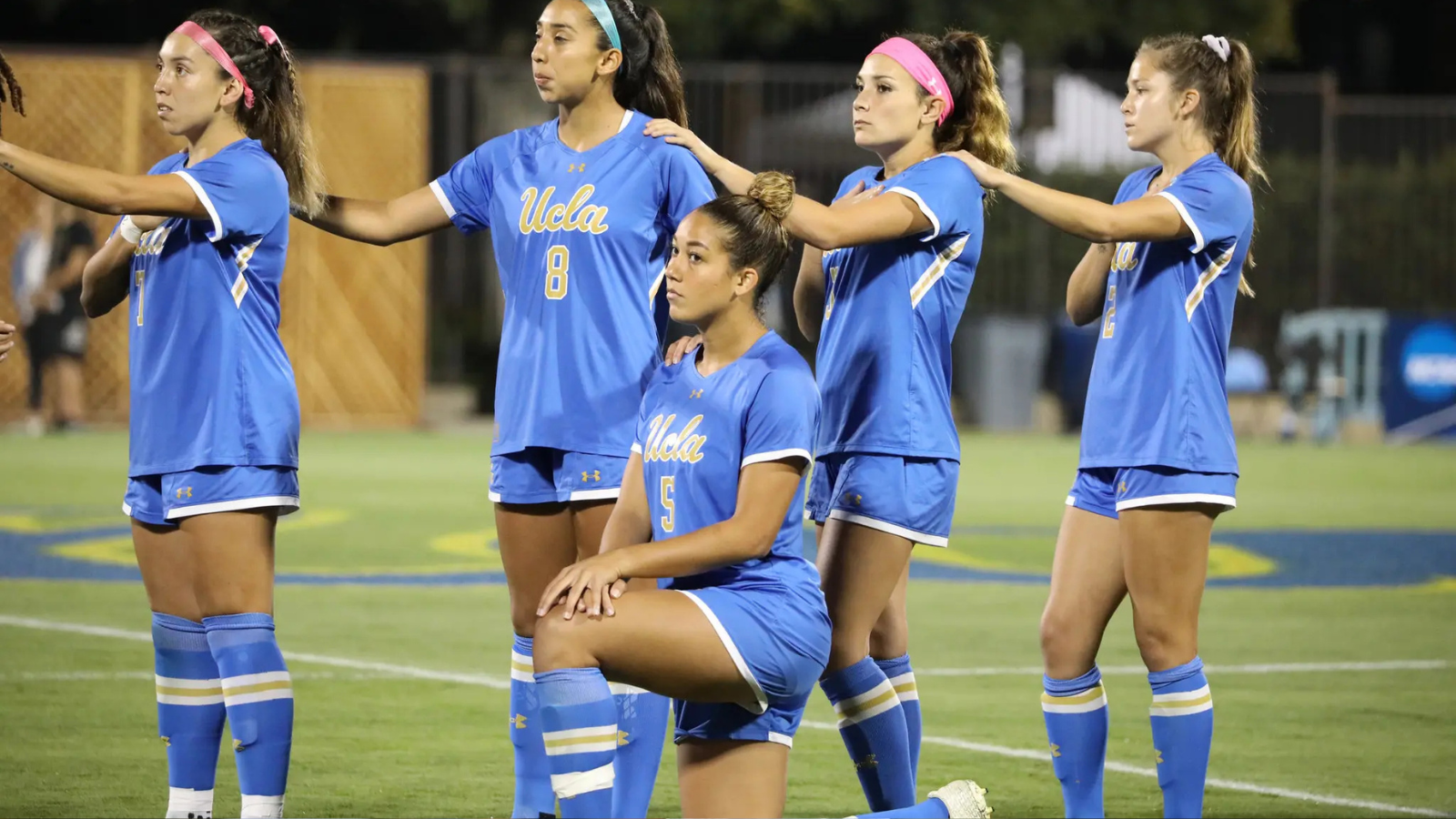Bern (6 June 2023) – Strong measures are needed to ensure that sports federations based in Switzerland comply with their human rights due diligence obligations, says Amnesty International. The human rights organization, together with the global coalition Sport & Rights Alliance, is calling on the Swiss Parliament to support two policy initiatives that seek to bring sports federations, as corporate actors, in line with their responsibility to respect human rights.
Switzerland is the proud home of more than 50 international sports federations, whose commercial activities and revenues generated abroad are on par with those of medium-sized corporations. Fifa, headquartered in Zurich, generated record revenues of 7.5 billion from the recent Men’s World Cup. The Lausanne-based International Olympic Committee (IOC) is in a similar league in terms of revenue. The sports federations’ profits increase from tournament to tournament, but their human rights record improves only tentatively, if at all. So far, there is a lack of effective measures and oversight of the human rights due diligence of sports federations in Switzerland.
Read the full letter sent to Swiss Parliamentarians here.
“In Switzerland, the current instruments and measures are far from sufficient to oblige sports federations based in Switzerland to comply with their human rights due diligence,” says Lisa Salza, responsible for sport and human rights at Amnesty International Switzerland. “The federations also do not sufficiently fulfil their duty to adequately compensate those affected by human rights violations for which the federations are partly responsible. A good example of this is the Men’s World Cup in Qatar, which led to the exploitation of hundreds of thousands of migrant workers because Fifa did not provide for human rights measures for a long time. Many of those exploited have still not been adequately compensated. The Beijing Winter Games have also shown that promises to guarantee freedom of expression and freedom of the media are ineffective if the IOC does not actively demand them.”
Amnesty International and the Sport & Rights Alliance (SRA), a global coalition working to enshrine human rights and transparency in world sport, are calling on the National Council in an open letter to take action and adopt two postulates dealing with the human rights responsibilities of sports federations. The postulates 21.4444, ‘How does the Federal Council ensure that Fifa and the IOC meet their obligations?’; and 22.4206 ‘Sports diplomacy. Major events should fulfil the human rights due diligence obligation‘ are to be put to vote on 8 June.
The Federal Council is requested to present a report on whether and to what extent FIFA and the IOC comply with the OECD Guidelines for Multinational Enterprises and the UN Guiding Principles on Business and Human Rights (UNGPs). In addition, a strategy for Switzerland’s dealings with major international sporting events with regard to human rights due diligence is to be developed. Amnesty International and the Sport & Rights Alliance support these calls and the need for the Swiss government to better monitor sports federations and hold them accountable for their actions.
“It is time for Switzerland to live up to its role as the host state of the largest and most influential sports federations in the world,” said Andrea Florence, Director of the Sport & Rights Alliance. “As representatives of those most affected by abuses in sport, we have witnessed far too often avoidable human rights abuses in the countries chosen by the federations to host their major sporting events. We call on the Swiss government to take effective measures to ensure that global sports federations live up to their human rights responsibilities.”
People call for strong measures
The need for strong measures to ensure human rights due diligence is increasingly recognised and demanded. According to an opinion poll conducted in August 2022 by YouGov on behalf of Amnesty International, 68 per cent of the Swiss population believe that human rights must be a key criterion when awarding sporting events such as the Fifa World Cup or the Olympic Games. This figure was higher than for any other criterion offered – quite a bit higher than the quality of infrastructure, for example – and higher than in any other of the 15 countries surveyed. It reflects the high expectations that the Swiss population has of sports federations here, and is in line with the Swiss population’s support for a binding corporate responsibility law in 2020, which was, however, rejected by the cantons.
“For us, it is clear that if companies and sports federations continue to make a lot of money abroad, this must not be done at the expense of human rights and the environment,” says Lisa Salza. “The numerous human rights failures of the World Cup in Qatar or the Olympic Winter Games in Beijing show that the existing measures to hold sports organizations accountable for their due diligence are not working. Many of the migrant workers exploited for the World Cup in Qatar are still waiting for adequate compensation today – despite Fifa’s proudly touted human rights policy.”
A first step in this direction would be the adoption of the two postulates, which are being debated in parliament this week and aim to ensure that “sports corporations” meet their responsibilities. Amnesty International also calls on the Federal Council to make good on its promise to draw level with the EU in terms of corporate responsibility legislation. In order to keep this promise, Switzerland must enact a strong corporate responsibility law, as the EU is on the verge of adopting a potentially effective law on corporate due diligence.
***
